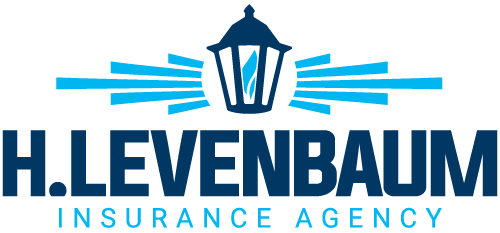Did you know that September is officially National Preparedness Month? Here at H. Levenbaum, we think you can never be too prepared, especially in the wake of recent storms like Hurricanes Harvey and Irma. This month, we want to share a few tips to help prepare your family and your home for a natural disaster, along with some information about insurance and catastrophe planning.
If there’s a chance bad weather could be headed your way, take the following steps to secure your home:
- Listen to NOAA Weather Radio for critical updates.
- Bring any items in your yard inside, or secure them to ensure they don’t get picked up by winds and cause more damage.
- Make sure all windows and doors are securely closed. If you have shutters, use them. If you do not, you can board up windows or doors with plywood.
- Make a disaster plan with your family. Make sure every member understands the plan.
- Unplug any unnecessary small appliances.
- Turn your refrigerator and freezer to the lowest setting to keep things as cold as possible for as long as possible in the event that the power goes out.
- Fill up the tank on your car.
- Identify local shelters and routes to get there from your home.
Here is a basic checklist of items you should have in case a hurricane watch or warning is called. You can find a more detailed checklist from the American Red Cross here.
Basics:
- Bottled Water — You can assume one person will need one gallon per day, keep at least a three-day supply for each person in your household.
- Food — Stock up on non-perishable, ready to eat items that require little or no preparation or cooking. Don’t forget to think about infants or anyone with special dietary restrictions.
- First Aid — A useful first aid kit could include bandages in various sizes, sterile dressings, gauze, hand sanitizer, antiseptic wipes, gloves, tape, anti-bacterial ointment, and scissors.
- Medications — Pack any necessary prescription drugs along with over-the-counter medicines like aspirin, ibuprofen, or antacids.
- Copies of Personal Documents — Collect important information like licenses, passports, birth certificates, or the deed or lease to your home.
Other Supplies:
- Battery-operated radio and extra batteries
- Flashlight with extra batteries
- Paper map of area with shelters marked off
- Personal hygiene items
- Extra clothing and shoes
- Bedding
Another important component of any hurricane preparedness plan is to make sure your insurance is up-to-date. When it comes to catastrophe planning, the following tips should make filing a claim easier and could save you from a lot of hassle:
- Create a home inventory of your belongings. This can either be done digitally, on paper, or through a video. Go through all of the contents of your home, and make note of any prices or receipts you may have.
- Make sure your homeowner’s policy leaves you adequately insured. It’s important to make sure that you are covered for the replacement cost of your home, not just the actual value of your home. An experienced insurance agent will be able to accurately calculate the replacement cost of your home to avoid leaving you over or under insured.
- While many standard homeowners insurance policies provide coverage for wind damage, they do not provide coverage for flood damage. If flooding is a concern, talk to your independent insurance agent to see what protections are available for you.
At H. Levenbaum Insurance Agency, we pride ourselves on being trusted advisors in addition to insurance agents. Whether you have questions about a homeowners insurance policy or additional flood coverage you may need, we’re here to help. Give us a call at 617-825-3900 or visit our website today to learn more: www.hlevenbaum.com
